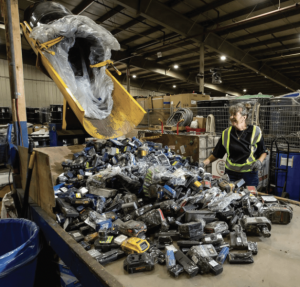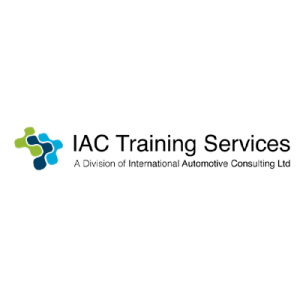Montréal, Québec — Propulsion Québec has released a study to “analyze the feasibility of implementing an extended producer responsibility (EPR) mechanism in Quebec.”
Extended producer responsibility (EPR) is an approach that seeks to transfer the responsibility for recovery and reclamation of materials to the companies at the origin of their marketing. Essentially, EPR acts as a way to hold businesses accountable for the goods they produce.
In mid-October, the Québec government announced that it would soon subject several types of products to the principle of EPR, including electric vehicle batteries, small batteries and lead-acid batteries.
According to Propulsion Québec’s study, the concept of EPR is more than applicable to EV batteries.
“The current legal framework in North America does not present a challenge for implementing EPR as a mechanism for recycling lithium-ion batteries,” wrote the company alongside its report. “In fact, it would complement other regulations, including those governing recycling of end-of-life vehicles, cells, and batteries and transportation of hazardous materials.
“EPR would address challenges faced by key market players, especially in terms of ensuring safe and environmentally friendly end-of-life battery management.”
Propulsion Québec maintains that EPR is already in place for EV batteries in Europe with a directive on batteries and accumulators as well as a directive on end-of-life vehicles.
“Quebec has an opportunity to lead the way on EPR in North America,” wrote the company.
The report outlines the key success factors for implementing EPR as setting the right parameters in terms of scope and definition of lifespan, as well as providing a balanced approach to funding; finding an optimal launch time to ensure a gradual and flexible approach and consistency across the board; flexible EPR implementation; conservative recovery targets; the implementation of a battery identification system; research and development awareness and promotion and a “collaborative approach” between the multiple links of the recycling chain.
“The Quebec Government is proud to support Propulsion Québec,” said Jonatan Julien, Minister of Energy and Natural Resources and Minister Responsible for the Côte-Nord Region. “This study enables identifying solutions and proposes actions to responsibly manage end-of-life electric vehicle batteries. The Québec Plan for the Development of Critical and Strategic Minerals includes conducting this discussion.”
Click here for Propulsion Québec’s full report.



























